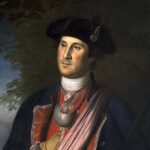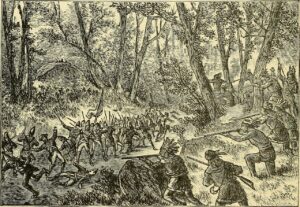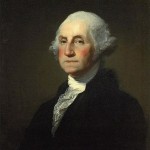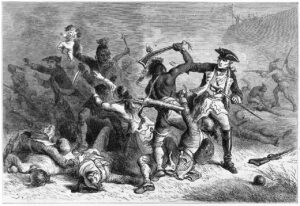french and indian war

 We all think of our first president as being a patriot hero of the Revolutionary War, leading to the independence of our nation and the many freedoms we now enjoy, and he was, but he was other things before he was all that. Everyone is other things before they become the thing they were destined to become. George Washington was born on February 22, 1732, at Popes Creek in Westmoreland County, in the British colony of Virginia. He was the first of six children of Augustine and Mary Ball Washington. His father was a justice of the peace and a prominent public figure who had four additional children from his first marriage to Jane Butler. He did come from a prominent family, and that could have afforded him much, but that wouldn’t have been his style.
We all think of our first president as being a patriot hero of the Revolutionary War, leading to the independence of our nation and the many freedoms we now enjoy, and he was, but he was other things before he was all that. Everyone is other things before they become the thing they were destined to become. George Washington was born on February 22, 1732, at Popes Creek in Westmoreland County, in the British colony of Virginia. He was the first of six children of Augustine and Mary Ball Washington. His father was a justice of the peace and a prominent public figure who had four additional children from his first marriage to Jane Butler. He did come from a prominent family, and that could have afforded him much, but that wouldn’t have been his style.
It is well known that George Washington led the Continental Army to victory against Great Britain in the 1770s and early 1780s, but a few decades earlier, like most young adults, George had a different view of things, and he actually fought for the British Empire. In 1754, 22-year-old Washington, then a lieutenant colonel for the British, managed to actually start a war with his actions. It is said that young Washington led his regiment into a skirmish with French troops, and the action escalated into the French and Indian War. One eyewitness totally blamed Washington, saying, “Colonel Washington begun himself and fired and then his people.” It was “a shot heard ’round the world,” sparking an epic, imperial struggle between Great Britain and France.
In reality, it wasn’t Washington’s fault. Tensions between France and Great Britain had been brewing in North America for more than a century. America had a lot of land, and with that would come a lot of power. The British and the French had been fighting over that land and that power. Swept up in the struggle were the inhabitants of New France, the British colonists, the Native Americans, and regular troops from France and Britain. What George Washington did that day really had little to do with a battle that was coming no matter 
 what. Had he not attacked, the war would just have started days or weeks down the road, but it would have started, nevertheless. The British and the French saw the vast lands of what would become the United States of America as a way to expand their power in the world, and like most wars, the land disputes brought with them an explosion that really could be heard around the world. What Washington did was a small battle in a much bigger war. And what he did later, changed history forever.
what. Had he not attacked, the war would just have started days or weeks down the road, but it would have started, nevertheless. The British and the French saw the vast lands of what would become the United States of America as a way to expand their power in the world, and like most wars, the land disputes brought with them an explosion that really could be heard around the world. What Washington did was a small battle in a much bigger war. And what he did later, changed history forever.

